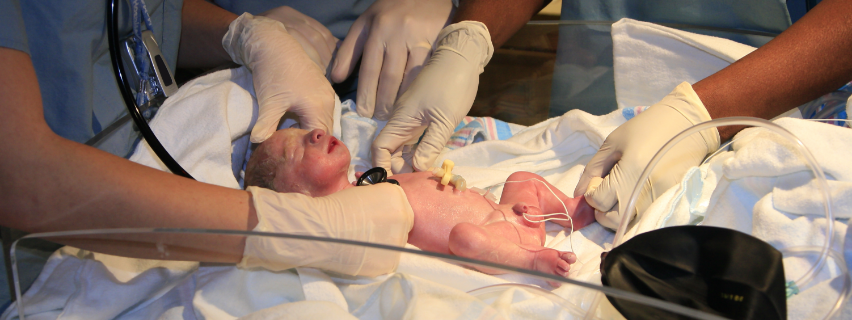What are the risk factors for premature/preterm labour and delivery?
Are you worried about premature birth? Do you fear preterm labour and delivery? Imagine giving birth several weeks before the baby is due. Will the baby be ready for the world? Will the baby survive since vital organs may be underdeveloped? Handling premature labour and delivery is tough for both the mom and baby. However, it is not impossible to get through this with flying colours. Read on to clear your doubts about preterm delivery and its accompanying risks.
Before that, let’s discuss What is Preterm Labour?
Preterm or premature labour is the regular contraction that happens when the cervix opens after week 20 or before 37 weeks of pregnancy. Going into preterm labour does not necessarily mean that a woman will give premature birth. However, it can lead to premature birth, which creates a higher health risk for the baby.
There are some results that premature babies or preemies may have long-term health issues and physical disabilities. The premature baby needs proper medical attention. If a woman is going through preterm labour, she needs to consult the doctor right away.
Signs and symptoms of Preterm labour
Preterm labour can happen to any pregnant woman. There are few specific causes or patterns. But, here are some common signs and symptoms which can lead to the birth of a preemie: –
● Frequent Menstrual-type cramps or abdominal tightening.
● Experience tightening or sensation in the lower abdomen for some women.
● Constant lower back pain travels to the front anterior.
● Put pressure on the vagina.
● Changes in Vaginal discharge – can be watery, mucus-like, or bloody.
● Vaginal spotting or light bleeding
● Membrane rupture around the baby results in a continuous trickle of fluid or also called water breaks.
Many women face preterm contractions as early as 23-24 weeks of gestation. But if you are having contractions every 10 minutes/ 6 times in an hour, run to a doctor immediately for further checkups.
What are the risks factors for Premature labour and birth?
Risk factors can affect any pregnancy. Look at these factors which can increase the risk of preterm labour and what causes preterm birth among women, including: –
● Past preterm labour or premature birth can cause problems in the recent pregnancy.
● Pregnancy with twins, triplets, or other multiples
● The short cervix can be another problem.
● Any problem with the uterus or placenta
● Using drugs or Smoking cigarettes causes early delivery.
● Pregnancy can be at risk of moms having certain chronic conditions, such as high blood pressure, diabetes, autoimmune disease, and depression.
● Depression and stressful life events cause problems too.
● High blood pressure with fluid build-up and proteinuria medically called Preeclampsia
● Vaginal bleeding during pregnancy
● Defects of fetal birth in the womb.
● Either mother is younger than 18 or older than 35
Can you reduce your risk for preterm labour?
● The proper gap between pregnancies: You should wait 18 months before getting pregnant again. It allows your body to heal and reduces the chance of having another preterm birth.
● Contraceptive method: Sexually transmitted diseases can cause early delivery. Contraception is the most effective method that includes the IUD or implant. Consult with a doctor to know what type of contraception is best for you.
● Take progesterone: If you have a history of delivering a premature baby, talk to your doctor about taking in your next pregnancy to lower the chance of having another premature birth.
● Manage weight: Overweight and underweight women suffer premature labour. During this time, pregnant women should work on their health and maintain a healthy weight based on what their doctor recommends.
● Avoid smoking and using drugs as they can increase your chances of having a preemie.
● Control chronic diseases: if you have heart disease, diabetes, high blood pressure, or autoimmune disease, work on controlling them and work with a doctor to take treatments before your next pregnancy
● Infertility treatment: It may increase the chance of getting pregnant with more than one baby. Unfortunately, twin and triplet pregnancies are the real cause of delivering early.
● Frequent Checkups: When you do get pregnant, try to be regular with checkups. Women who receive good prenatal care have a lower chance of giving birth to a preemie.
Other Complications of Premature Birth
Premature babies are born before organ systems have fully matured. These babies are born small with a low birth weight (less than 2,500 grams or 5.5 pounds). They may also need help in breathing, eating, fighting infection, and staying warm. Babies born before 24 weeks are at higher risks of health issues.


Premature babies may have other problems, including:
Not being able to maintain the body temperature or stay warm may lead them to be kept in an incubator
● Have Breathing problems leading to use of ventilator which can cause other issues
● Suffer from heart diseases, such as heart and blood vessels problems, heart defects, and heart rate problems.
● Blood problems such as anaemia, jaundice, or hypoglycemia.
● Digestive problems such as trouble feeding and poor digestion
● Nervous system problems bleeding in the brain or seizures
● Viral Infections or bacterial
Key Takeaway
● Preterm labour is an early contraction that starts before 37 weeks of pregnancy.
● Symptoms of early labour include low abdominal contractions, menstrual cramps, backache, or leaking of ammonia fluid from the vagina.
● It may result in the early birth of the baby, which causes them serious health problems such as heart and lung disease.
● Prevent the risk factors such as smoking, following an unhealthy diet, proper measures between pregnancies, and regular checkups to avoid any complications.

People also ask (FAQ)
How long can you be in preterm labour?
If it’s your first pregnancy, the early labour lasts about 6 to 12 hours. During this time, you can take some rest or try to be more comfortable at home. Stay healthy and manage the diet. You may also have mild contractions that can last between 5 – 15 minutes.
What triggers preterm labour?
The most common reasons are infection and inflammation that cause preterm labour during the gestational age, between 20 – 32 weeks gestation. Further, preterm birth is caused by the bacterial or viral infection in the vagina, bladder, uterus, or other body parts.
How can I manage the preterm labour?
Preterm labour can be managed by what is best for your health and the fetus’s health. If the fetus would benefit from a delay in delivery, medications may help the organs mature more quickly, reduce the risk of certain complications, and attempt to delay delivery for a short time.
Does the baby move during preterm labour?
Yes, baby movement starts between 16-18 weeks of pregnancy. If you have had a baby before, you will start feeling the baby move in 18-20 weeks. All women should feel baby movements before 24 weeks.
What are the physical problems of premature babies?
A “preemie” is a baby born too early, or about three weeks before the due date. The complete fetal development takes about 40 weeks. Premature birth occurs before 37 weeks. Babies require 9months to grow fully. If the baby is born too early, it can cause serious health problems. Preemies may have heart, brain, lung, or liver issues.
They are also at a higher risk of physical development problems. These can lead to physical issues later in life, including:
● Cerebral palsy.
● Hearing and vision problems.
● Learning disabilities.
● Poor growth.
Can having preterm labour lead to premature birth?
It is difficult for health care professionals to predict which women with preterm labour tend to give a premature baby. They will try to delay the delivery as long as possible with the help of medication to give the baby a chance to develop inside the womb. You must consult your doctor as soon as you experience symptoms and let them decide what is best for you.
Having a preterm baby can be stressful for both mother and baby. However, with proper medical care and precautions, a premature baby can be nursed to grow normally. Once Preganews delivers the good news about your baby’s arrival to you, make sure you take good care of yourself and reduce the risk factors that could lead to premature birth.







































Leave a comment